Some people equate sore muscles with a good workout. They yearn to wake up with the feeling of their hard work accomplished at the gym.
No pain, no gain, right?
I am not one of those people.
Sure I like to work out, but I also like to wake up pain free the next day so I can work out again.
You see, that burn your trainer can’t seem to get enough of (but really kills you) doesn’t have to hurt so much.
While it’s critical to eat foods that give you endurance, you can’t forget to take care of your body post workout too.
So today we’re going to talk about foods that actually make your muscles feel less sore after you exercise. They may seem like a myth or a dream come true, but they’re totally backed by science – and the results are very real.
Why Muscles Get Sore
 Delayed onset muscle soreness, or DOMS for short, is what you feel while your muscles are rebuilding.
Delayed onset muscle soreness, or DOMS for short, is what you feel while your muscles are rebuilding.
While the cause is not totally understood, many people agree that it’s a result of exercise gently tearing microscopic rips in your muscles and the connective tissues around your muscles.
Symptoms of DOMS include:
- Muscle soreness
- Stiffness
- Weakness
- Sensitivity to the touch
You’ll typically start noticing pain or symptoms 12–24 hours after your sweat sesh. The symptoms will peak around the 24–72 hour mark and then they’ll go away within three to five days.
You’ll probably experience DOMS if you:
- Performed an exercise you’re not accustomed to doing
- Increased the intensity, frequency, or duration of your exercise
- Focused on eccentric exercises
FYI: “A muscle contracts eccentrically when it lengthens under tension during exercise”, such as when you’re lowering your arm during bicep curls or running downhill.
“The aches and pains should be minor”, says Carol Torgan, an exercise physiologist and fellow of the American College of Sports Medicine, “and are simply indications that muscles are adapting to your fitness regimen.”
This tearing and rebuilding is essentially the cycle of building muscle mass.
You have a very finite window of 30–45 minutes post workout to make sure your body has all the essentials for proper recovery.
Your body will need to replace your energy stores, repair muscles, and restore fluids and electrolyte levels.
These foods will all heal that exercise burn and provide your body with extra needed essentials for recovery.
Lean Protein
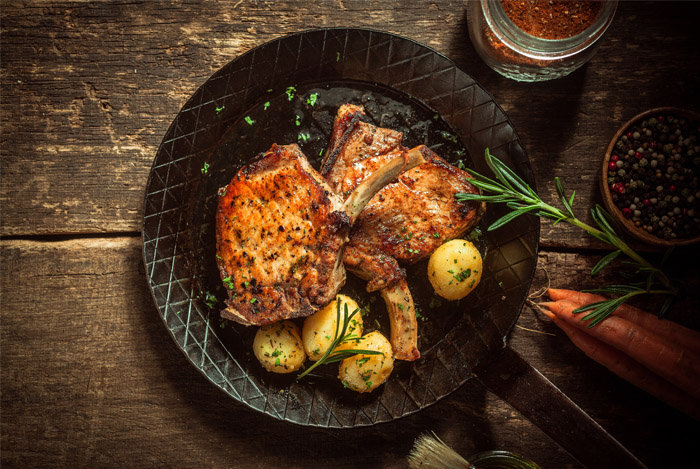 Muscle tissues are mostly made of proteins.
Muscle tissues are mostly made of proteins.
Eating protein to repair lost proteins in muscles kind of seems like a no brainer. This is why all the muscle-heads at the gym scarf down protein like it’s the apocalypse.
Dietary proteins are rich in amino acids, aka the building blocks of protein. Proteins help new muscle fibers develop and “increase the bulk of existing muscle fibers by the incorporation of new protein strands.”
Making sure to give your body protein post-workout will guarantee that your muscles have what they need to repair and recover. But you don’t want to pick fatty proteins that will undo all of your hard work.
Choose from some of the best lean protein sources to help your muscles, such as the ones I’m about to outline below.
Whey Protein
 There’s a reason you can’t walk 10 steps in a gym without spotting a whey protein shake, drink, or bar somewhere.
There’s a reason you can’t walk 10 steps in a gym without spotting a whey protein shake, drink, or bar somewhere.
Actually, there are three: leucine, isoleucine, and valine. Even though we need them, these three essential amino acids found in whey protein are not manufactured by our bodies.
They encourage protein synthesis by going directly to your muscles instead of being digested by your liver.
And whey protein gets to your muscles FAST— I’m talking like 10–15 minutes fast— which results in a huge boost of circulating amino acid levels.
This means that drinking a whey protein shake post workout will supply your torn muscles with the food it needs to repair and grow ASAP, thus minimizing the days of soreness.
One study even proved that when you ingest protein 30 minutes before you go to sleep, it stimulates “muscle protein synthesis” and improves “whole-body protein balance during post-exercise, overnight recovery.”
Whey protein’s health benefits make it an all-around awesome addition to your diet.
Hemp Seeds
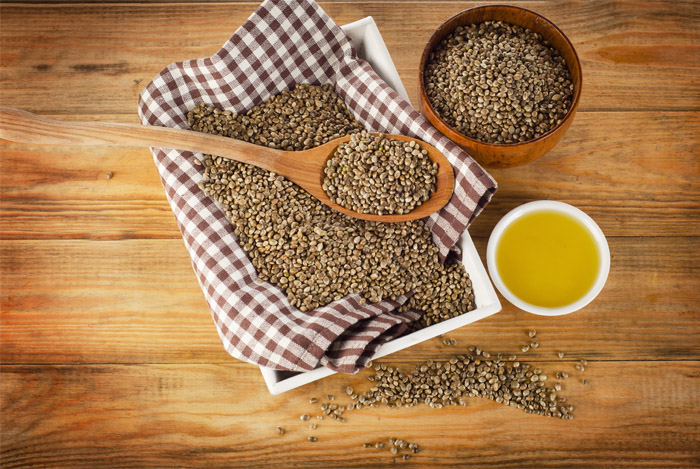 Whole hemp seeds can be up to 25% straight protein. Just one ounce (2 tablespoons) of hemp seeds contains 10 g of protein.
Whole hemp seeds can be up to 25% straight protein. Just one ounce (2 tablespoons) of hemp seeds contains 10 g of protein.
That’s more protein per ounce than both chia seeds (4.7 g) and flax seeds (5.1 g).
Billy Locke, AFAA Certified Personal Trainer, says:
“Hemp protein is the best protein for building muscle and promoting overall health because its nutrient density is greater than other protein powders. Plus, it’s filled with bioavailable enzymes and good bacteria to facilitate the conversion of amino acids to muscle.”
Hemp seeds contain all of our essential amino acids so rebuilding muscle will be a painless cinch. It even has omega-3s to fight off inflammation.
Hemp is literally one of my favorite proteins, and it’s completely animal free. Check out these other fantastic health benefits of hemp to see why I’m crazy about it.
Need some delicious high-protein snacks? Look no further.
Complex Carbs
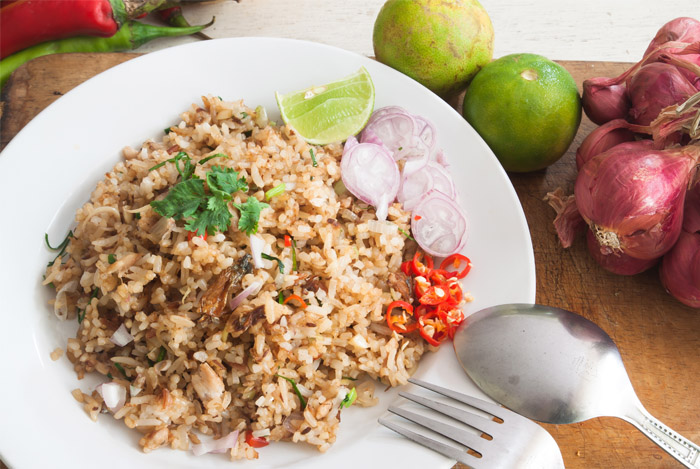 Making sure your body produces enough protein and speeds up muscle repair so you’re not sore takes a lot of work. You need some serious energy for that.
Making sure your body produces enough protein and speeds up muscle repair so you’re not sore takes a lot of work. You need some serious energy for that.
Who better to call than complex carbs?
These are your body’s primary and most preferred source of fuel.
Now, most people eat complex carbs to give them energy pre-workout and then concentrate on protein post-sweat sesh. And as we just learned, protein is totally essential for recovery.
But so are carbs.
In fact, according to one study, when participants consumed 100 g of carbs post workout, they showed slightly less muscle breakdown than participants who consumed a placebo.
Looks like all that energy from the carbs really helped speed up muscle building and recovery, which is why you shouldn’t completely cut out carbs. Carbs are an important macronutrient that you can eat and still lose weight.
Just make sure you’re choosing good complex carbs instead of bad simple carbs, if you don’t know the difference between the two you’ll completely sabotage your muscle building efforts.
Here’s a perfect example of a complex carb ready for muscle repair.
Quinoa
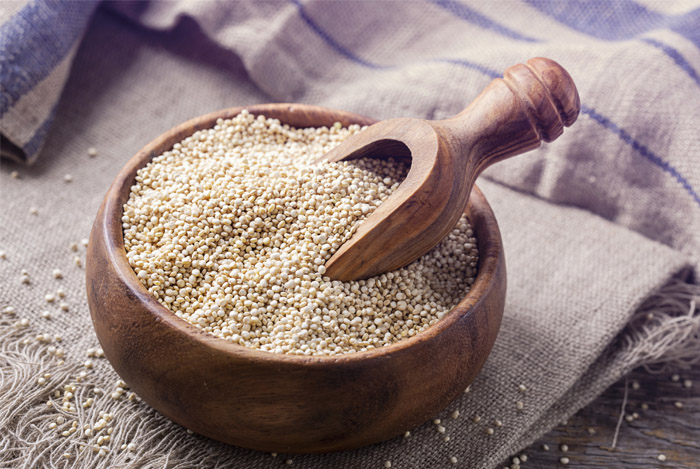 Quinoa should be in everyone’s pantry.
Quinoa should be in everyone’s pantry.
According to Elaine Marie Conrad of Stack:
“Quinoa provides all the essential nutrients for muscle recovery. One cup of quinoa delivers minerals, fiber, antioxidants, enzymes, all nine essential amino acids and nine grams of protein.”
Conrad also says that the lysine found in quinoa helps to “repair and grow muscle tissue faster”, so you’re in less pain afterwards.
Quinoa contains a 5:1 ratio of complex carbohydrates to lean protein so it’s almost like giving your muscles the best of both worlds.
Quinoa’s a perfectly versatile food because it has a neutral flavor that works well with all types of cuisines and meal times. I love substituting quinoa for oatmeal, pasta, or rice in my favorite recipes.
Try out these delicious quinoa recipes and find out your favorite way to add this supergrain to your diet.
Healthy Fats
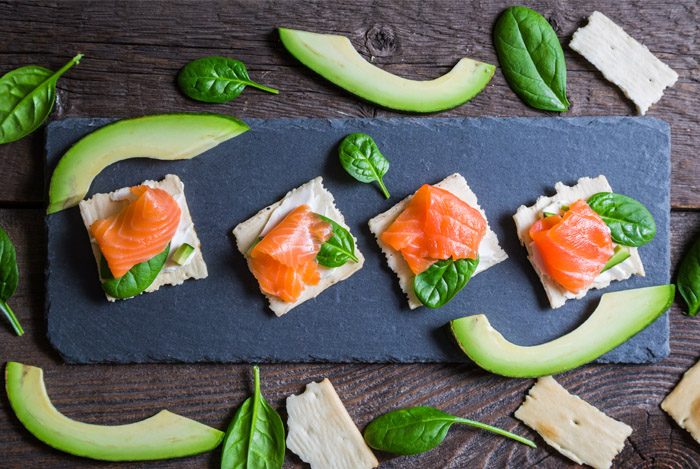 I know it sounds contrary to add fats to your workout regime, but hear me out.
I know it sounds contrary to add fats to your workout regime, but hear me out.
Studies have shown that omega-3s lessen inflammation caused by exercise.
Omega-3s benefit your body by providing:
- Faster recovery time
- Reduced muscle soreness
- A slowed rate of muscle loss
- Increased fat burning
The best omega-3-rich foods happen to be fatty foods that are surprisingly healthy such as salmon, avocado, coconut oil, and our next two foods.
Chia Seeds
 One ounce of chia seeds provides 4915 mg of omega-3 fatty acids and 4.4 g of protein. They’re also another complete protein so you’ll have all of your essential amino acids for muscle recovery.
One ounce of chia seeds provides 4915 mg of omega-3 fatty acids and 4.4 g of protein. They’re also another complete protein so you’ll have all of your essential amino acids for muscle recovery.
Chia’s protein, fiber, and anti-inflammatory compounds make it great on-the-go recovery fuel.
One study even determined that omega-3 chia-loading provided similar benefits for energy and endurance as typical pre-workout carbo-loading.
If you’re short on energy, skip the sugary Gatorade and make a chia energy drink instead.
You’ll need:
- 2 cups of coconut water
- 2 tbsp of chia seeds
- A good squeeze of fresh lemon
- Sweetener of choice
Combine chia seeds with coconut water in a jar or glass; let sit for 5–10 minutes. Once the chia seeds have grown in size or are suspended in the liquid mixture, add your favorite natural sweetener and a fresh squeeze of lemon.
Nuts
 They’re not only a great source of omegas; all nuts have a strong vitamin E game, and that’s definitely something your muscles want to hear.
They’re not only a great source of omegas; all nuts have a strong vitamin E game, and that’s definitely something your muscles want to hear.
Vitamin E has the power to strengthen your muscles, which means they won’t be prone to soreness after your workouts.
It also helps repair muscle damage so you can recover pain free quickly.
Nuts also provide a boost of protein to rebuild muscles that have been broken down during exercise.
Walnuts in particular have more omega-3s than all of the other nuts, with just one ounce (about 14 halves) containing 2565 mg of omega-3s and 4.3 g of protein.
Their anti-inflammatory compounds will help your body recover and heal faster, which will definitely curb DOMS.
Pistachios have the most potassium and vitamin K in the nut world. Potassium helps keep muscle tissue in peak condition and may even prevent muscle weakness and painful cramping.
“Potassium also assists in the conversion of glucose to glycogen and the synthesis of muscle protein from amino acids. Potassium has a very important role in helping the body convert macro nutrients into muscle building material and muscle fuel.”
You’ll love the magnesium content of cashews, which may protect against soreness and fatigue.
“Magnesium allows the body to produce more Insulin-like Growth Factor (IGF-1), which is a major contributor to the growth and strength of muscles.”
Any way you get them, nuts are a wonderful post workout snack and you can’t beat their portability.
Eggs
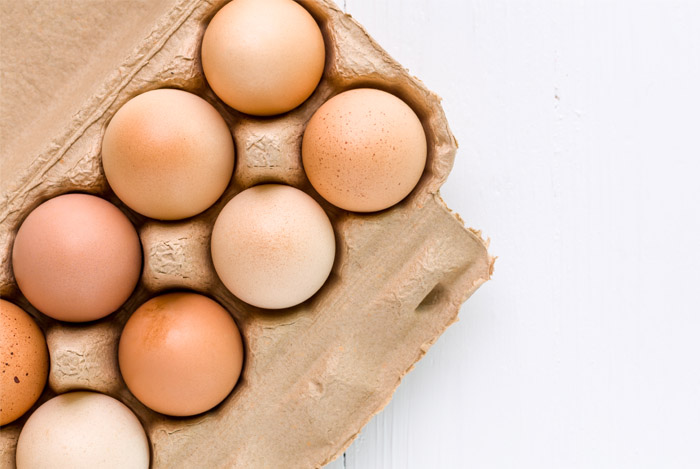 We disproved the myth that eggs have too much cholesterol to be considered healthy, and we even determined that they’re essential for your healthy diet.
We disproved the myth that eggs have too much cholesterol to be considered healthy, and we even determined that they’re essential for your healthy diet.
Eggs are an amazing source of protein, plus all of your essential amino acids, important vitamins, and minerals.
Did you know that the vitamin D found in eggs also fights off muscle soreness and promotes muscle growth?
You may want to take your yoga classes outside or walk to the gym— having adequate levels of this sunshine vitamin pre-workout has been shown to give you “less post-exercise muscle weakness and better recovery through the entire recovery process.”
Make a dozen hard boiled eggs over the weekend and you’ll have enough for pre or post workout snacks all week.
Tart Cherry Juice
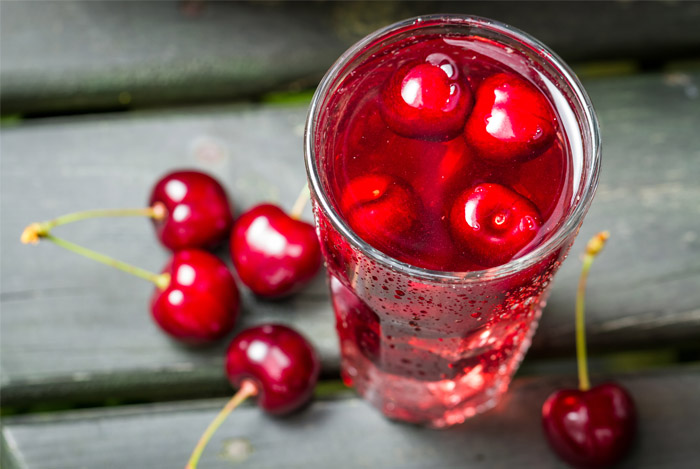 The incredibly high antioxidant and anthocyanin content of tart cherry juice make it one of the best recovery foods on the planet.
The incredibly high antioxidant and anthocyanin content of tart cherry juice make it one of the best recovery foods on the planet.
The antioxidants and anthocyanins relieves both muscle pain and weakness, inflammation, and cellular damage that occurs after hard exercise.
According to one study, when runners consumed tart cherry juice for one week prior to a big race, they had significantly less pain than runners who only received a placebo.
Runners taking the placebo also had a 22% loss in strength. Runners drinking cherry juice only saw an average of 4% strength loss after exercise.
“The bottom line is those runners who used tart cherry juice had less inflammation and faster muscle strength recovery”, said Kerry Kuehl, M.D., the lead author of the study.
Anthocyanins “block inflammation and…inhibit pain enzymes, just like aspirin, naproxen, and other nonsteroidal anti-inflammatories”, says Muraleedharan Nair, PhD.
The results from another study showed that when participants drank one ounce of concentrated cherry juice twice a day for 10 days, they “bounced back faster” from their workouts. The anti-inflammatory cherry juice reduced exercise-induced muscle damage and made them feel better so they could keep exercising.
“Cherry juice appears to provide a viable means to aid recovery following strenuous exercise by increasing total antioxidative capacity, reducing inflammation…and so aiding in the recovery of muscle function.”
According to Matt Frazier of Competitor:
“Studies conducted over the past five years have found that regular consumption of tart cherry juice may accelerate post-workout recovery, increase overall training capacity and enhance performance in races by reducing muscle pain.”
I’m always a fan of getting everything from as close to the source as possible (hello, extra fiber!), but tart cherry juice is so concentrated in anthocyanins and antioxidants that this is one exception to my rule. Just make sure your cherry juice doesn’t contain added sugars.
You could also blend cherry juice in a whey protein smoothie if you’re watching your sugars; the whey will slow down the sugary juice’s absorption.
Ginger
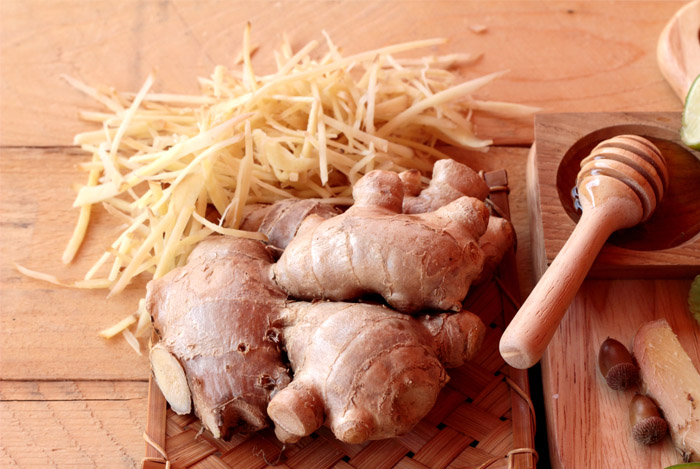 Ginger is rich in anti-inflammatory compounds such as gingerols.
Ginger is rich in anti-inflammatory compounds such as gingerols.
One study concluded that “daily consumption of raw and heat-treated ginger resulted in moderate-to-large reductions in muscle pain following exercise-induced muscle injury.”
As Medical News Today points out, a study involving 74 volunteers at the University of Georgia found that “daily ginger supplementation reduced exercise-induced muscle pain by 25%.”
During another study, participants were asked to consume ginger 24 hours after they exercised. The researchers noticed that the participants reduced their muscle pain the following day, or 48 hours after their workout session.
Participants taking the placebo in the same time frame noticed no change in muscle soreness. Ouch!
So if you work out intensely a lot or suffer from muscle aches, consider making ginger part of your daily routine to decrease the length of time your muscles are sore.
Not sold on ginger? See if these incredible health benefits of ginger change your mind.
Being sore after a kick butt workout session is a natural effect of hard work. It means that your muscles are rebuilding to be better than ever.
You have to go through this tearing and rebuilding process, it’s the only way you’re going to physically change your muscles to make them look and perform the way you want them to.
But by adding these foods to your diet, you can prevent that intensely sore workout-skipping pain and focus on training harder every day. Soon exercising will be a breeze and your muscles will be aching for a harder workout!
Which of these foods are you going to try to help your muscles recover? Share your thoughts and workout recovery tips with me in the comments!
The post Heal the Burn: How Diet Can Alleviate Your Exercise Pain appeared first on Nutrition Secrets.
http://www.nutritionsecrets.com/how-diet-can-alleviate-your-exercise-pain/
No comments:
Post a Comment